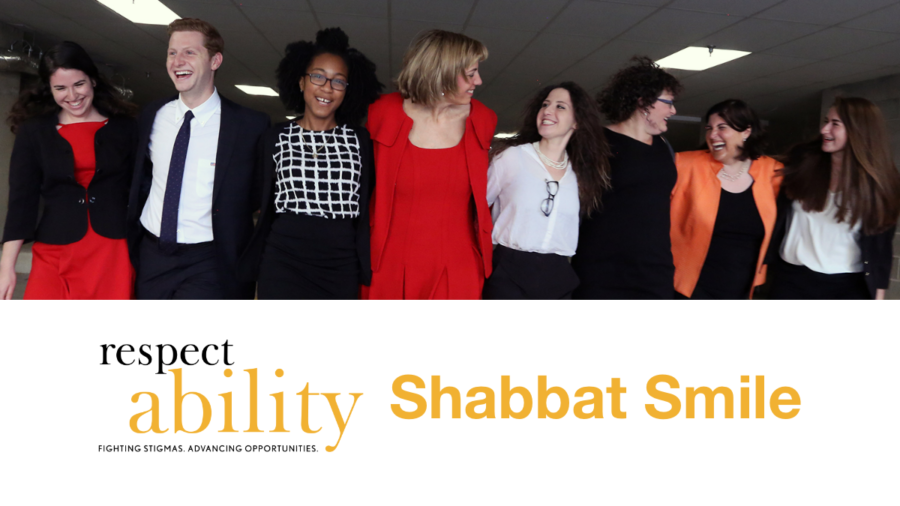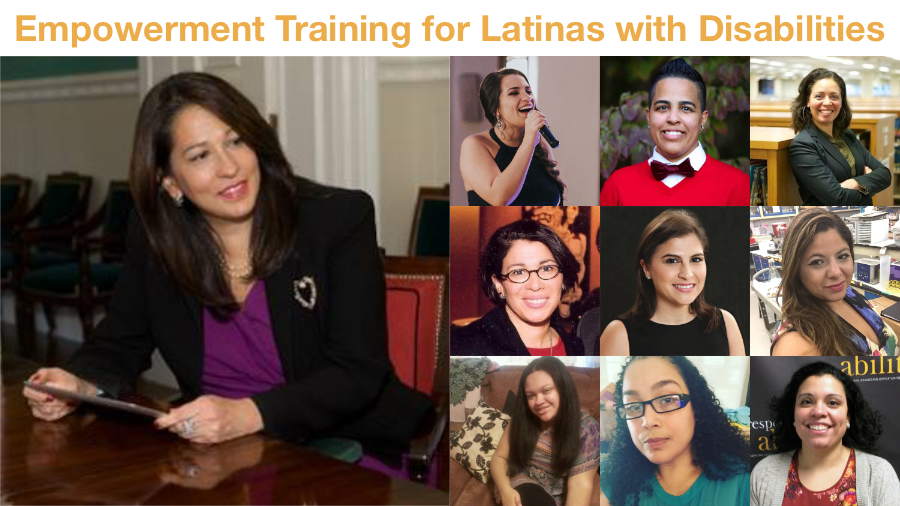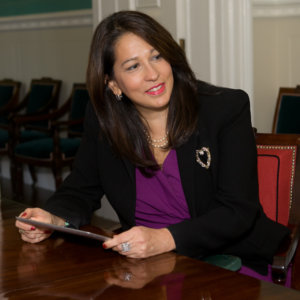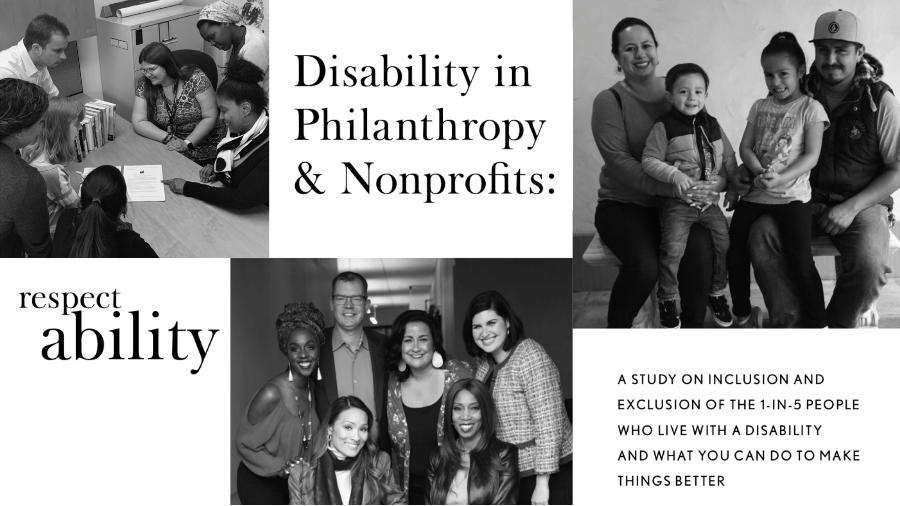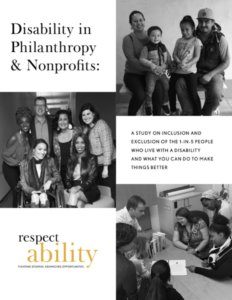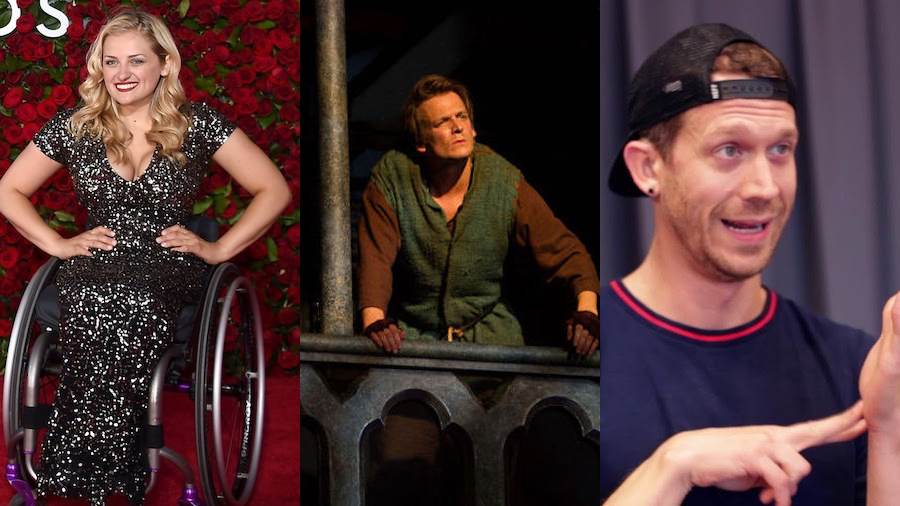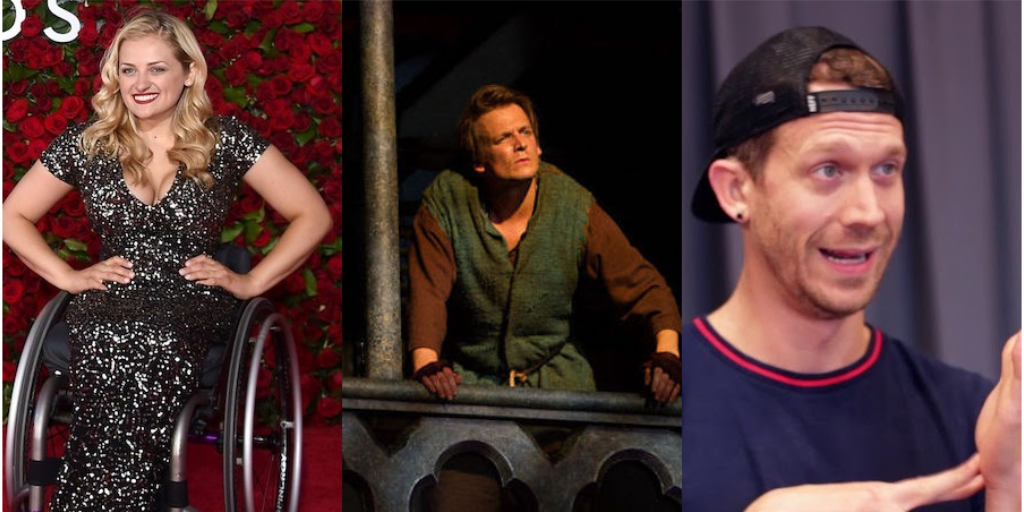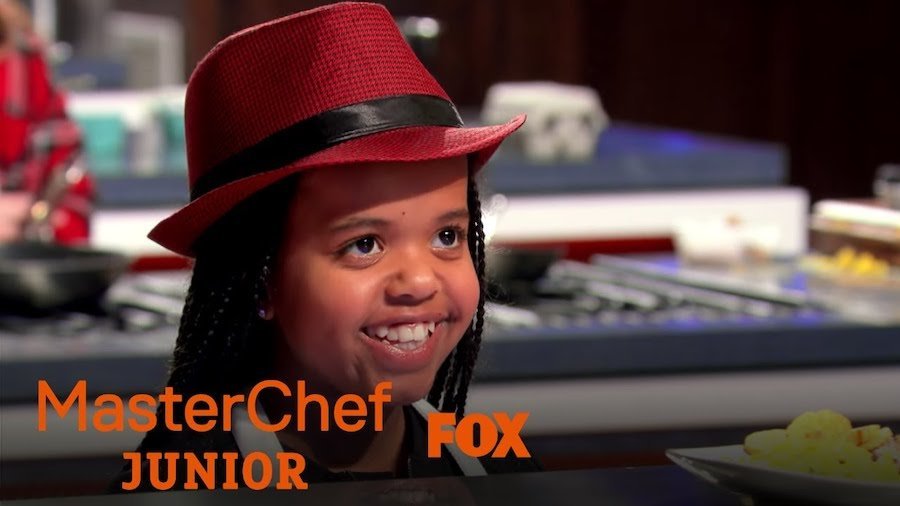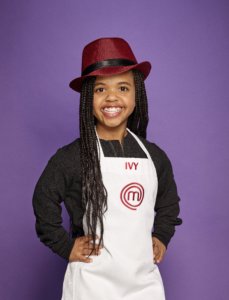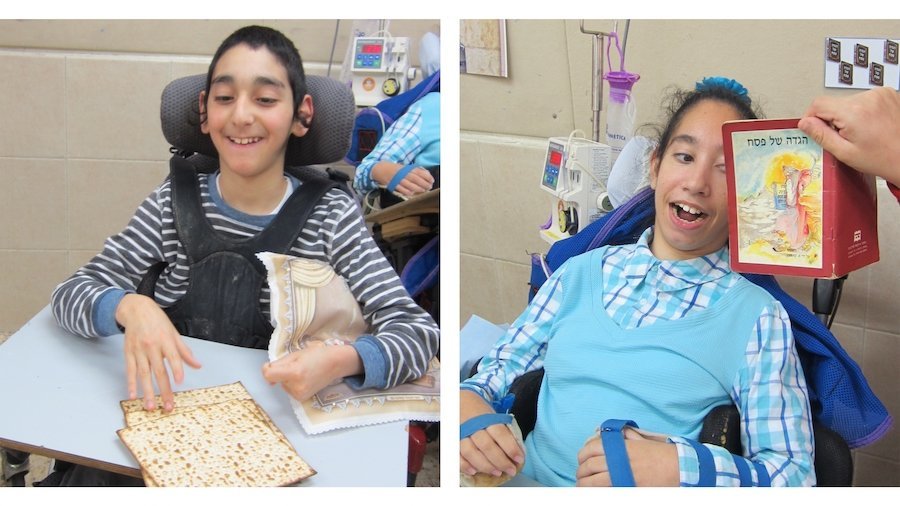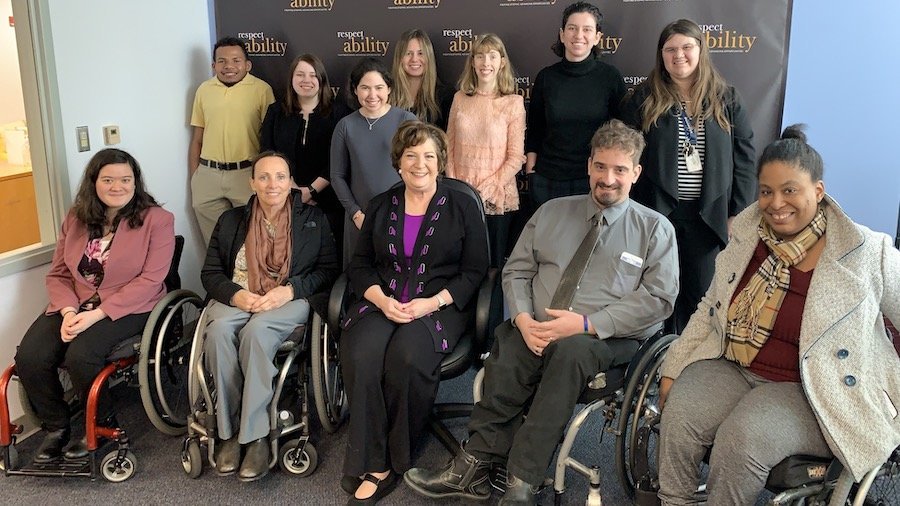Our Shabbat Smile is early this week, so you can have time to: consider making some easy, last minute, inclusive changes if you are hosting a seder; or respectfully engage the host, with suggestions for easy, last minute, inclusive changes. This piece on Seder inclusion was written by Dov Hirth, ALEH’s Coordinator of Marketing, Development and Special Projects.
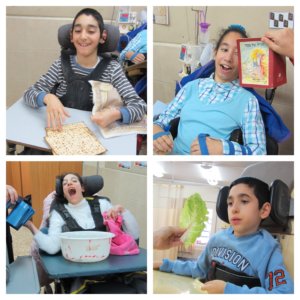
Photos courtesy of ALEH, 2019
When done right, the Passover Seder is the ultimate opportunity for experiential learning. Centered around our children, the Seder provides countless opportunities for the inclusion and engagement of children of all ages, abilities and backgrounds.
After many weeks of practice at school and at home, the stage is set for the youngest child at the Seder to sing Ma Nishtana, melodically musing “Why is tonight different from all other nights?” We encourage every child to contribute to the night’s discourse, to offer thoughts and insights at his or her own levels as to the reasoning behind the evening’s many unusual customs. And we sing tunes with inviting intonations so that everyone can join in and end on a high note with the nursery rhymes of Echad Mi Yodeah and Chad Gadya.
While there are so many ‘traditional’ avenues for education and engagement at the Seder, it’s the Haggadah’s description of the Four Sons – in the name of full inclusion, let us say Four Children – that stands out to me as a crucial teachable moment.
Rabbi Yisrael Meir Lau, Former Chief Rabbi of Israel, explains that the word ‘echad’ (one) is used when introducing each of the Four Children to show us that every single person around the table is equal to one. Every person, from the ‘wise child’ to the so-called ‘wicked child’ are counted as peers. Every person, regardless of age, gender, background, education or abilities, are considered equal members of the family and the Jewish nation.
It’s this nod to disability inclusion, the notion that the child who does not know how to ask is also counted as one, that makes this segment of the Seder so meaningful to me. Working at ALEH, Israel’s network of care for children with severe complex disabilities, I have encountered hundreds of beautiful souls who, through no fault of their own, simply do not have the capacity to ask questions at the Seder like other children. It’s heartwarming to know that they, too, have an equal place at the table.
With these children, it is especially important to follow King Solomon’s brilliant pedagogical philosophy of “Educate each child according to their own way” (Proverbs 22:6). While this often means speaking to a child in his or her own language or providing age appropriate explanations and activities, for children with disabilities, it means planning ahead to make the Seder more accessible and focusing on the things they can do throughout the evening.
Some easy ideas for inclusion:
- Give children with disabilities a seat of distinction at the table, making it clear to all that they are equal participants in the Seder activities.
- Wash the hands of the children with disabilities when doing Urchatz, the first opportunity to wash our hands at the Seder – it is a wonderful sensory experience that will make an impact on them.
- Assist these young participants with the dipping of Karpas (the vegetable ‘appetizer’) in saltwater and in taking drops of grape juice (or wine) out of their goblets when counting the Ten Plagues.
- Find/make and use puppets and props (available for purchase) to engage children – especially those with disabilities – to tell the story of the Exodus from Egypt in a multisensory way.
- Encourage children of all levels of ability to work together to hide and retrieve the Afikomen, a classic game of hide and seek that can be transformed into a wonderfully inclusive experience.
While the Haggadah speaks of Four Sons – Four Children – many commentators highlight the existence of a ‘Fifth Child’: one who isn’t even at the Seder table. Through the generations, we have interpreted this as a directive to engage with those who feel detached or disillusioned and have decided to steer clear of the Seder. But it is important to realize that it can just as easily refer to those who cannot physically make it to the table themselves, and who may have been overlooked because they cannot participate in exactly the same ways.
In this and every generation, it is our obligation to “regard ourselves as if we had come out of Egypt.” It is likewise our responsibility to ensure that every person is given the opportunity to do the same by participating in the Seder. Our celebration of freedom can only be complete if there is a seat at the table for everyone, and we can only be truly free if we carry this message of inclusion over to every other day of the year.
Dov Hirth is the Coordinator of Marketing, Development and Special Projects for ALEH (www.ALEH.org). ALEH is a network of care for individuals with severe complex disabilities and a global voice for disability inclusion and accessibility in Israel. In addition to providing over 750 of Israel’s most vulnerable children with the highest-level medical and rehabilitative care in four residential facilities across the country, ALEH leads the charge for acceptance and inclusion, changing societal attitudes towards individuals with disabilities through experiential education programming, youth leadership and community engagement. For more than 35 years, ALEH has operated as a global community based on the principles of sensitivity, commitment and kindness, helping children with severe complex disabilities realize their greatest potentials, making a difference in the lives of Israel’s disability community, and building a better, more caring world.
In our weekly Shabbat Smiles, RespectAbility welcomes a wide spectrum of voices. The views expressed in each Shabbat Smile are those of the guest contributor.
The Shabbat Smile is curated and edited by Debbie Fink, RespectAbility’s Director of Community Outreach and Impact and Vivian Bass, RespectAbility Executive Committee Board Member.


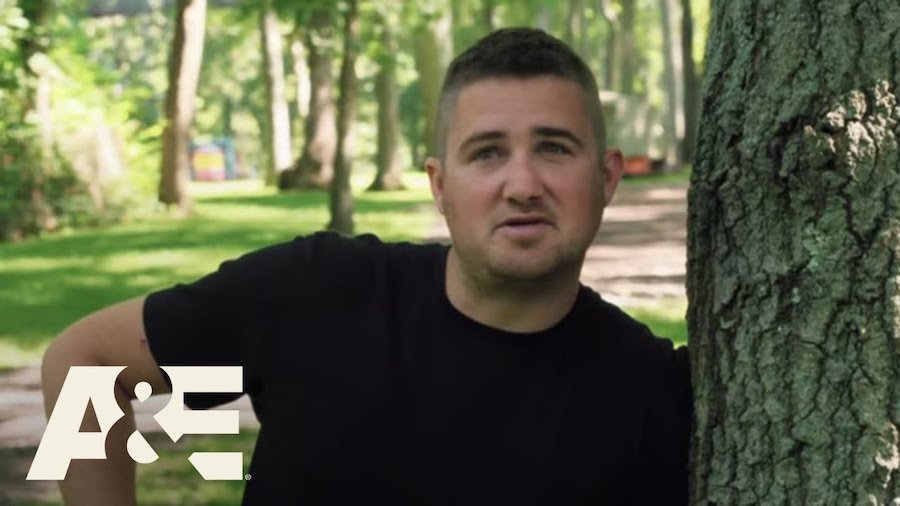
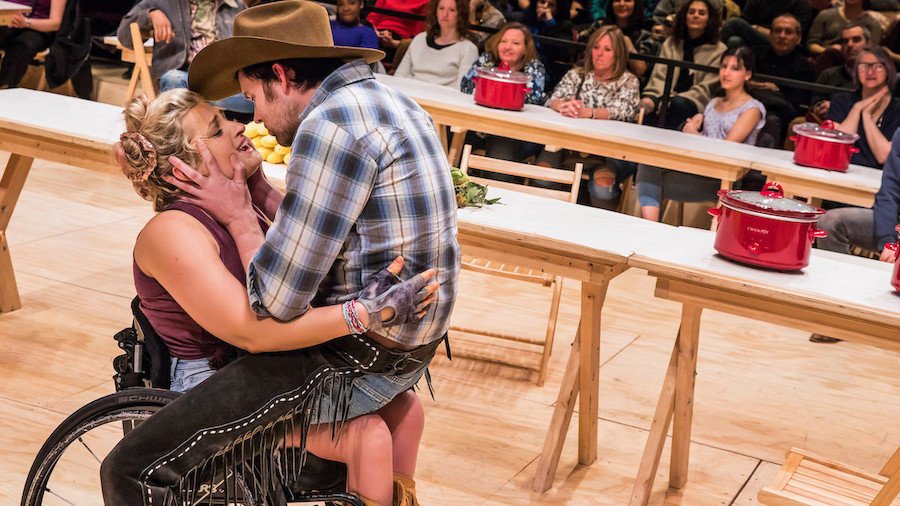
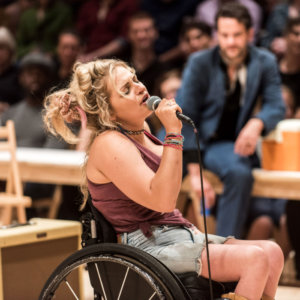 New York City, May 3, 2019 – This year’s nominations for the Tony Awards – a major award ceremony honoring Broadway shows and performers – broke new ground for the disability community when Ali Stroker became the first performer with a wheelchair to be nominated for a Tony Award. She is nominated for Best Featured Actress in a musical for her sexy take on Ado Annie in the groundbreaking revival of Rodgers & Hammerstein’s Oklahoma!
New York City, May 3, 2019 – This year’s nominations for the Tony Awards – a major award ceremony honoring Broadway shows and performers – broke new ground for the disability community when Ali Stroker became the first performer with a wheelchair to be nominated for a Tony Award. She is nominated for Best Featured Actress in a musical for her sexy take on Ado Annie in the groundbreaking revival of Rodgers & Hammerstein’s Oklahoma! 